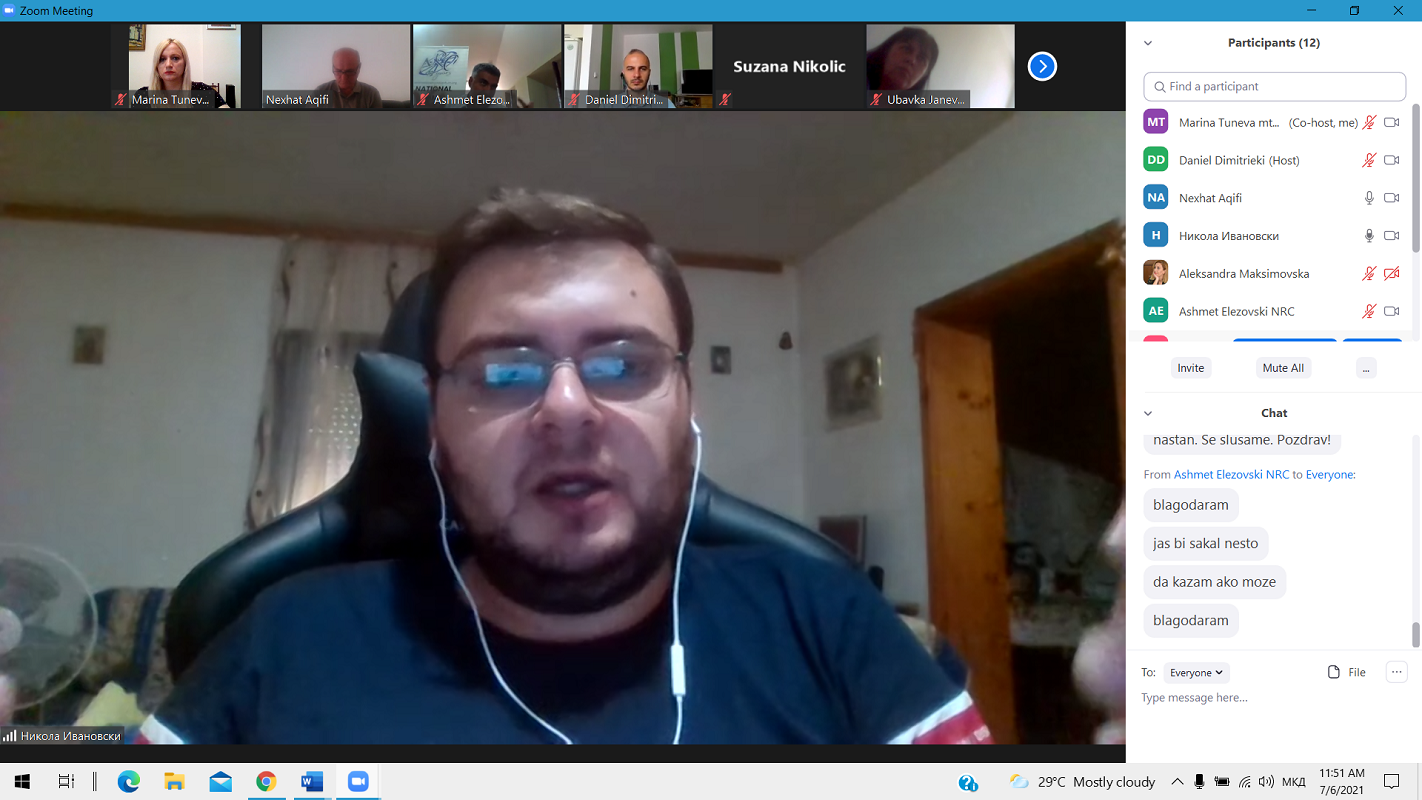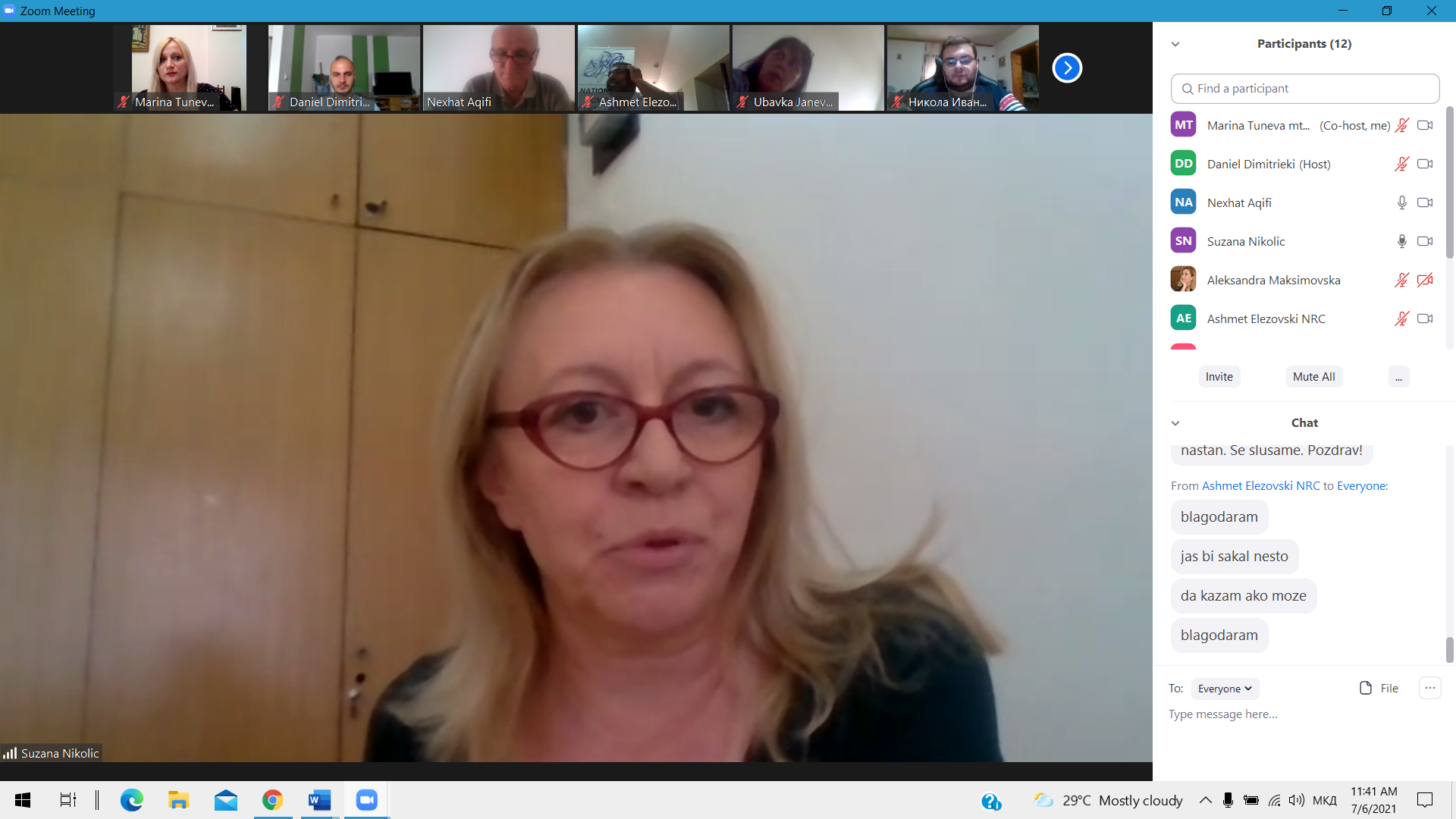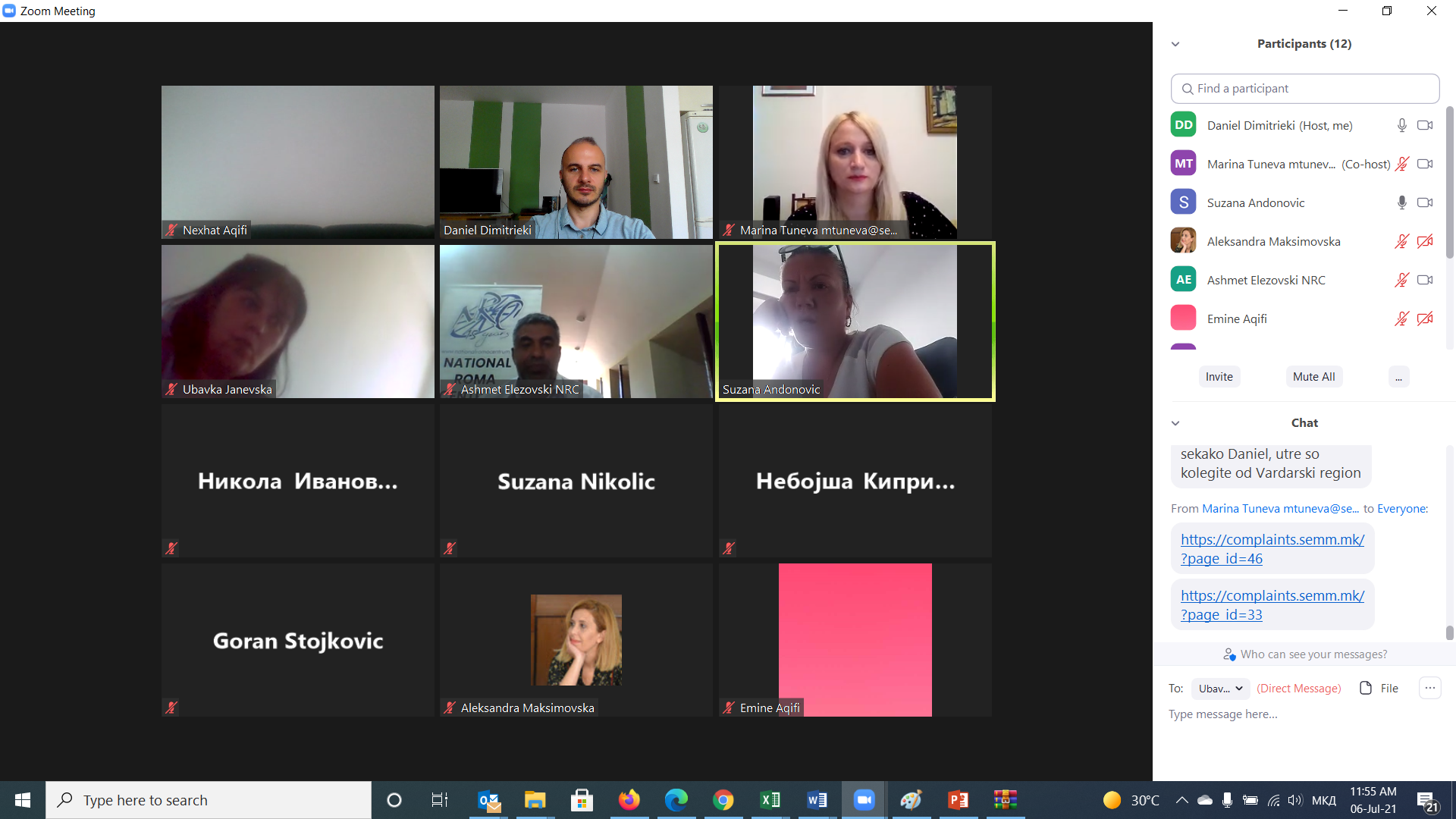Today CMEM organized an online meeting with the journalists from the Southeastern planning region seated in Kumanovo. The meeting was attended by journalists from the local electronic and online media. The topic of the meeting was ‘Media Reporting in COVID-19 Circumstances – CMEM Experiences’.
‘Sensationalistic informing, unilateral reporting and lack of distance from the political entities while reporting are the main observed cases of infringement of the Code of Journalists of Macedonia’, highlighted the Director of CMEM, Ms. Marina Tuneva.

‘In the course of the pandemic circumstances, a vast number of complaints were received by the Complaints Commission within CMEM’, stated Mr. Daniel Dimitrieski, the Program Coordinator of CMEM.
‘In the year 2020, we received a total of 140 complaints. This is double the number of complaints we received in 2019. For illustrative purposes, in the year 2019 we had a total of 83 complaints. In the year 2020, 109 decisions were adopted, 18 complaints were classified as unjustified whereas 13 complaints were resolved by virtue of mediation, i.e. reconciliation between the parties. In the year 2020, 15% of the complaints were resolved by virtue of mediation as opposed to 2019 when only 4% of complaints were resolved by virtue of mediation. This points out to the fact that the media are more and more willing to cooperate with the self-regulatory body. As for 2021, up to present date, 95 complaints have been received and we expect another increase by 20 to 30%, stated Mr. Dimitrieski.
Most of the journalists elaborated on a variety of issues they encountered in their respective profession, primarily related to lack of finances.

‘Even though we are journalists ourselves we were insufficiently informed and in the course of the pandemic we would predominantly receive the information at a central level. Finances are just another issue and we are aware of the situation that other media are in. Additionally, for a given period of the pandemic we had no guidelines pertaining to protection of journalists,’ highlighted the journalist Nikola Ivanovski.
The journalist Suzana Nikolikj highlighted that they had encountered different obstacles as regards on-site reporting in the course of the pandemic. ‘In this region, and particularly in Kumanovo, there is an insufficient number of spokespersons representing the public institutions, and occasionally this function is performed by the heads, thus posing an additional obstacle with reference to timely reporting. Due to the afore-stated situation we were obliged to obtain information at a central level and we were unable to provide in-depth and comprehensive reporting about the circumstances in our immediate surroundings’.
The attending journalists were also informed about the benefits associated with the creation of a Register of Professional Online Media.

The representatives of CMEM appealed for greater engagement of media in the support to self-regulation, as well as in terms of coordination initiatives, both within the professional media community, as well as with other relevant stakeholders, such as the business sector. As regards this issue, the attendees gave their unwavering support.
This event is within the framework of the Project Support to Freedom of Expression in the Media in North Macedonia implemented by the Council of Media Ethics (CMEM) with the support of the EU Delegation to the Republic of North Macedonia.